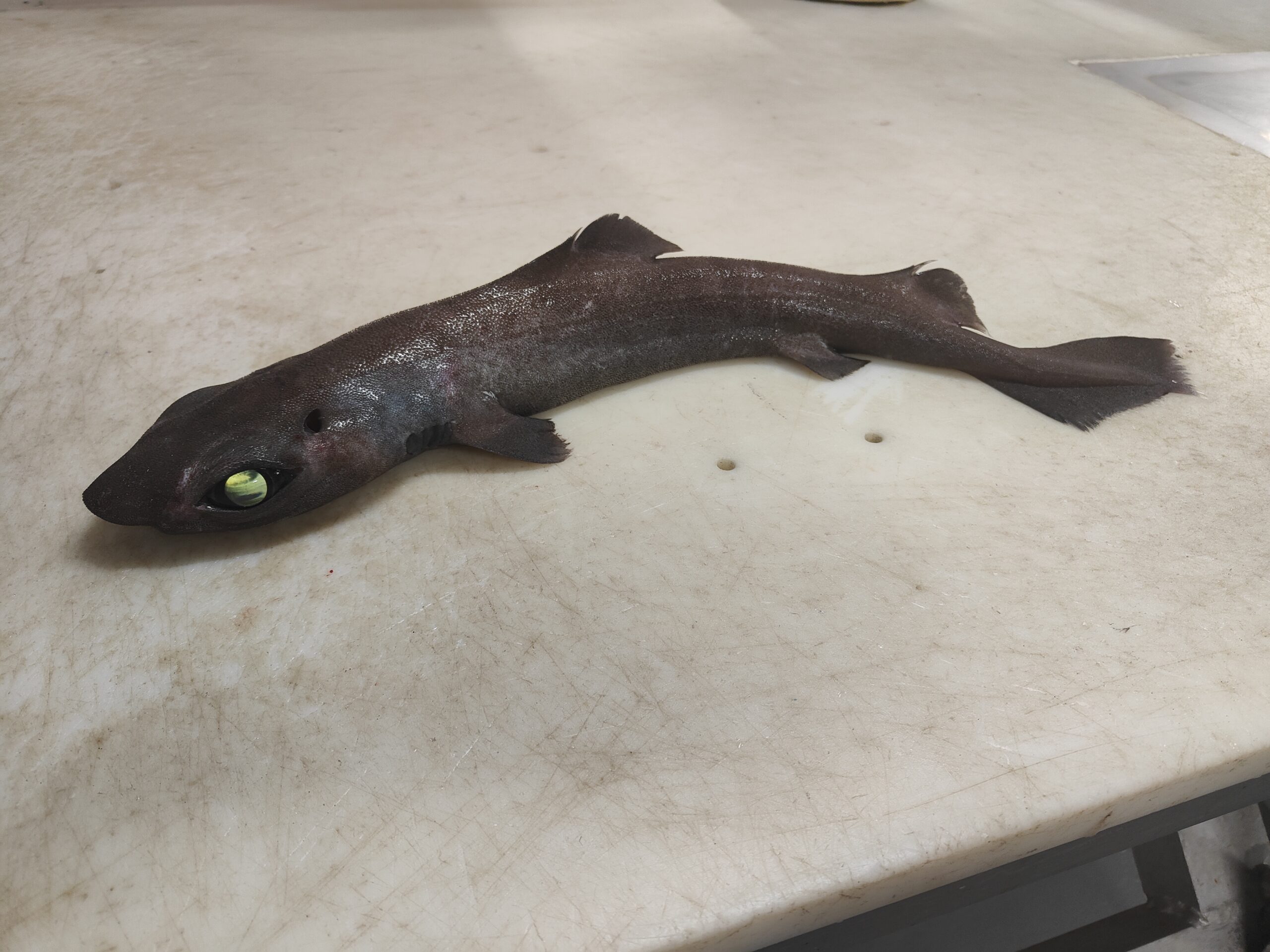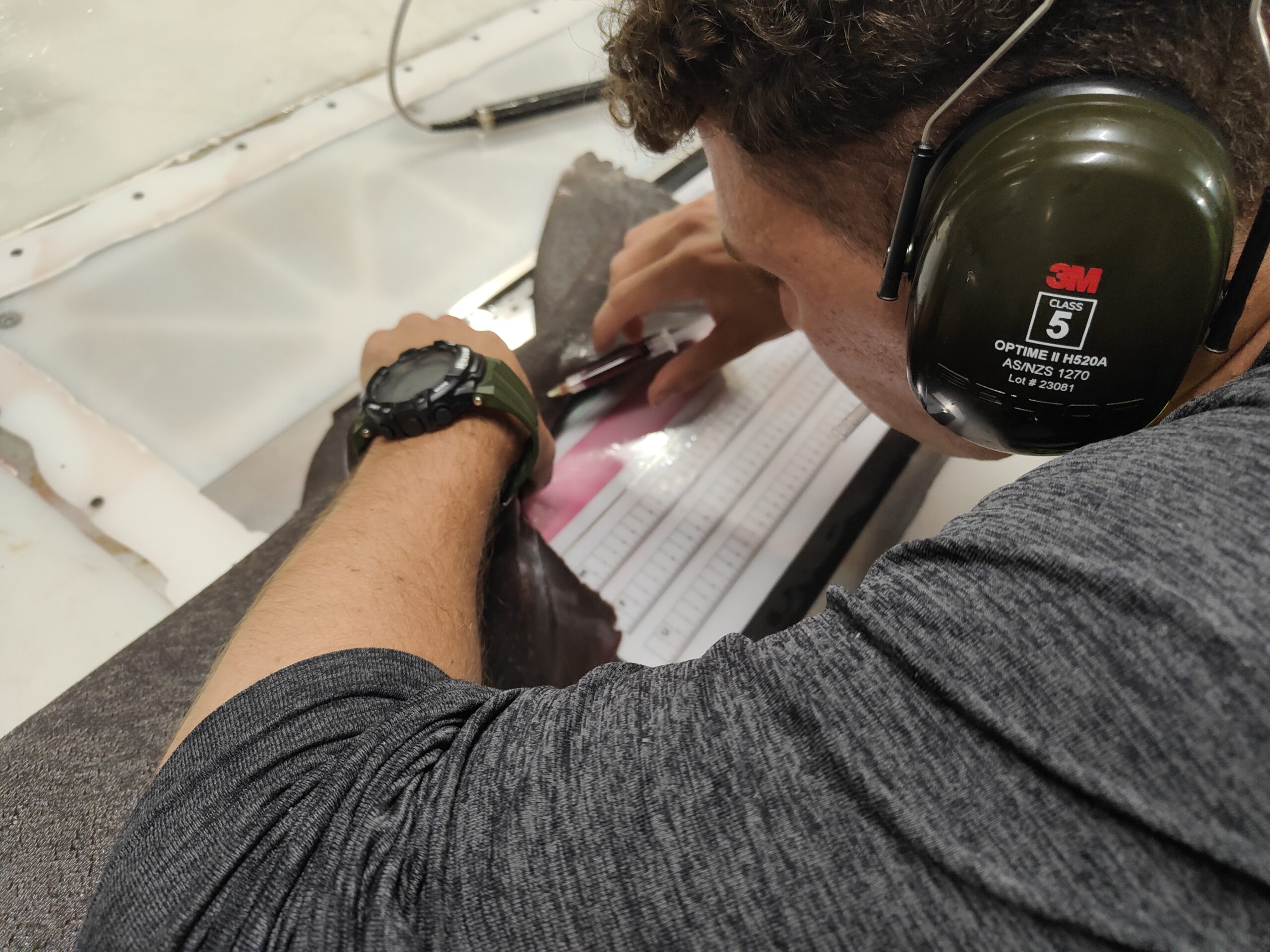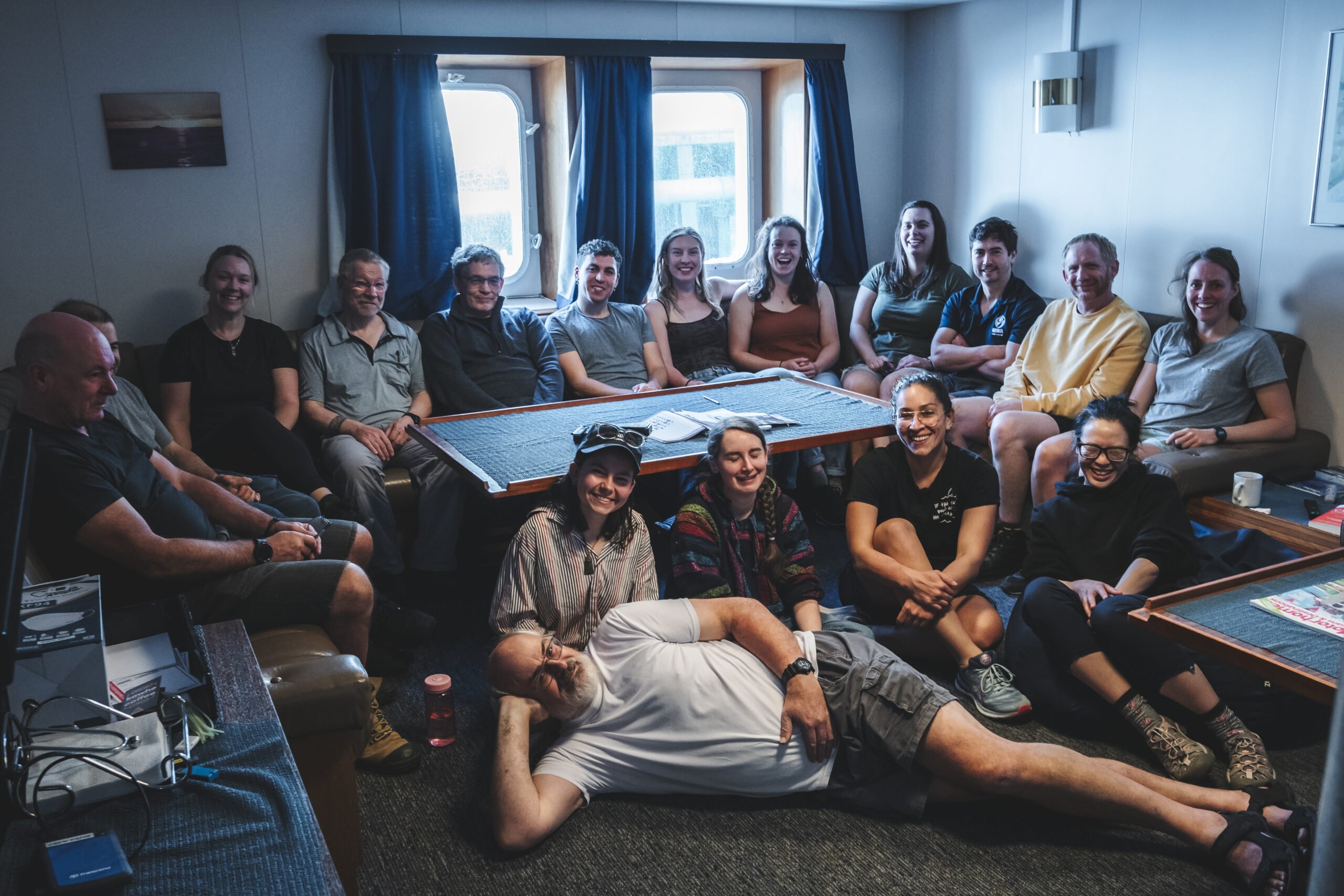Voyage to Chatham Rise: evaluating the health of deepwater chondrichthyans
I recently had the opportunity to join the National Institute of Water and Atmospheric Research (NIWA) from New Zealand on a fishing survey exploring the vast Chatham Rise. This unique area hosts a remarkable diversity of deepwater sharks, rays and chimaeras. Although a month onboard can be exhausting, spending it on a hotspot of biodiversity and having encounters with rare species like the leafscale gulper shark made it an unforgettable experience.

Juvenile leafscale gulper shark (Centrophorus squamosus). Photo © Brittany Finucci
The primary objective of our expedition was clear: to assess the mortality and stress levels of deepwater chondrichthyans when caught unintentionally in fisheries. Every bycatch incident represents a potential threat to these vulnerable species, highlighting the urgency to improve survival rates upon release back the sea. Although measures such as retention bans have been introduced to safeguard specific deepwater sharks, the real challenge lies in minimizing unintentional catches and subsequent mortalities.
During our month onboard, we meticulously assessed the health of over 1300 shark, ray, and chimaera specimens spanning 30 species across 14 families. Each specimen underwent thorough examination of both physical and behavioural traits, alongside blood sampling to gauge their physiological condition. Furthermore, some were continuously monitored in tanks to track short-term health changes – an intensive task that demanded continuous shifts every 12 hours, without weekends or breaks. We sampled day and night, maintaining vigilant attention to every detail. Despite the challenges, the hope that our findings could shape global conservation strategies drove us with solid determination.

Blood extraction from an adult female of a largespine velvet dogfish (Scymnodon macracanthus) before being released. Photo © David Ruiz-García
Looking ahead, the collaborative spirit with our international partners has been particularly inspiring. Thanks to the support of the Save Our Seas Foundation we have teamed up with esteemed research institutions such as NIWA in New Zealand, the University of Valencia and Fundación Oceanogràfic in Spain and companies like Zoetis, whose contributions have been crucial in advancing our research efforts.
Join us as we continue to develop a comprehensive health assessment toolkit aimed at supporting the conservation of chondrichthyans. Everybody can contribute to safeguarding our oceans and their incredible biodiversity by advocating for responsible fishing practices and endorsing robust conservation measures.

Voyage members on board the Tangaroa during the Chatham Trawl Survey. Photo © Irene Middleton
